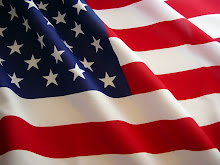
Wage peace with your breath.Wage Peace by Judyth Hill
Breathe in firemen and rubble,
breathe out whole buildings and flocks of red wing blackbirds.
Breathe in terrorists
and breathe out sleeping children and freshly mown fields.
Breathe in confusion and breathe out maple trees.
Breathe in the fallen and breathe out lifelong friendships intact.
Wage peace with your listening: hearing sirens, pray loud.
Remember your tools: flower seeds, clothes pins, clean rivers.
Make soup.
Play music, learn the word for thank you in three languages.
Learn to knit, and make a hat.
Think of chaos as dancing raspberries,
imagine grief
as the outbreath of beauty or the gesture of fish.
Swim for the other side.
Wage peace.
Never has the world seemed so fresh and precious:
Have a cup of tea and rejoice.
Act as if armistice has already arrived.
Don't wait another minute.
Celebrate today.
In the aftermath of September 11, many people struggled with how they wanted to define their response to the events. Some knew that they supported the attacks against the United States, perhaps feeling that the only way to get through to the super power was to use violence to air grievances. Authors Esposito and Mogahead discuss the concept that many people were unable to understand the idea that the terrorists wanted to air their grievances. Others did not know how they wanted to respond and contemplated the stances that could be taken. However, most people, especially in the United States, took a firm position against the attacks, denouncing them and calling for retaliation against the perpetrators. What we saw in the days and months following the attacks on the World Trade Center were many people who called for violence and destruction to those they considered to be enemies of the United States. However, one poem by Judyth Hill did not have the same response of violence. Wage Peace is a poem that calls for people to respond to the attacks with peaceful and everyday activity and it is very different from the patriotic poetry and other art that was so popular at the time.
Wage Peace is an example of a more holistic approach to September 11. The title itself lends us to this kind of thinking as one generally sees the word “wage” in front of “war.” The play on words suggests that Hill believes that we should go about being peaceful as intensely as a war would be waged. Additionally, in the beginning of the poem, she writes: “Wage peace with your breath.
/Breathe in firemen and rubble,
breathe out whole buildings and flocks of red wing blackbirds. /Breathe in terrorists
and breathe out sleeping children and freshly mown fields.
” In these passages, Hill uses opposing imagery to suggest that the reader should take in and understand the moment of 9/11 but also “exhale” or act out moments of peace, not hostility. Her poem can be considered a form of counter-culture as it calls for peace, instead of the many other poems, newscasts, government responses and art forms that contributed to the violent and accusatory dominate rhetoric or “official culture” of dealing with 9/11.
Furthermore, Hill’s poem not only calls for peace but it asks people to respond to the attacks with performing an everyday activity. Hill writes, “Make soup.
/Play music, learn the word for thank you in three languages.
/Learn to knit, and make a hat.” This part of the passage asks for people to continue about their daily lives and really, not do anything out of the ordinary. The poem suggests that readers “make soup” or learn a new language in order to broaden horizons. One of the most interesting aspects of this poem is that there is no dwelling on anger or sadness. Hill simply believes that the events should be absorbed and acknowledged but that people should peacefully continue on with their normal routine or use this experience as a chance to reinvent themselves and understand new things about life.

No comments:
Post a Comment